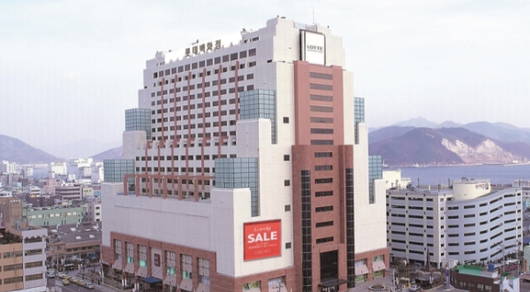 |
Lotte Department Store Masan branch, which closed down last June. (Lotte Department Store) |
<이미지를 클릭하시면 크게 보실 수 있습니다> |
Lotte Department Store is actively pursuing asset optimization strategies, including sales and closures for over 10 underperforming stores. Following its recent announcement of plans to sell its Centum City store in Busan, the company is considering a comprehensive restructuring of low-performing outlets.
According to industry sources on Monday, Lotte Department Store is reviewing restructuring plans for locations including its Gwanak, Sangin, Bundang, Ilsan, and Daegu stores.
Among its 32 stores nationwide, the Masan location, ranked lowest in sales, was closed in June. The Centum City store is now up for sale.
“We are examining various approaches to underperforming stores, including sales, closures, or redevelopment, as part of our asset rebalancing efforts,” said a company official.
In cases where Lotte owns the property, the company is open to sales or sale-and-leaseback arrangements to convert assets into cash, aiming to improve efficiency amid declining group performance.
For leased properties or those already under sale-and-leaseback agreements, closures are being considered.
For instance, Lotte previously sold and leased back its Bundang store in 2010, followed by Ilsan, Sangin, Pohang, and Dongnae stores between 2014 and 2015.
Lotte has also expanded its asset efficiency measures to non-operational assets, including logistics centers in Bundang and a factory in Ansan, to enhance its financial structure and fund new investments.
The company emphasizes that sale-and-leaseback arrangements are part of its strategy to streamline assets and bolster competitiveness. Funds raised through asset sales are being directed toward refurbishing key domestic stores and expanding its overseas operations.
Despite the restructuring plans, challenges remain.
Selecting buyers and negotiating with local governments on permits for repurposing or redevelopment are proving to be hurdles.
For instance, some locations are already encountering delays in permit discussions with municipal authorities. Stores like the Konkuk Univ. Star City location, bound by long-term lease agreements, face additional difficulties in implementing immediate closures.
This large-scale restructuring marks a shift from Lotte’s previous multi-store strategy, which has been deemed less effective.
While Lotte operates 32 stores across the country—more than double the number operated by Shinsegae (13) and Hyundai (16, including Connect Hyundai in Busan)—its inefficiencies have overshadowed its 35 percent market share, which is higher than Shinsegae’s 31 percent and Hyundai’s 24 percent.
Lotte accounts for 24 of the 40 lowest-performing stores among the top five department store operators in Korea.
To counteract inefficiencies, Lotte is focusing resources on core stores.
Earlier this year, the company established a task force under its Chief Executive Officer Chung Joon-ho and created a shopping mall business division to spearhead store renovations.
Meanwhile, Lotte Corp. announced that it has committed to a financial support agreement to provide additional funds if needed for its subsidiary, Lotte Biologics.
The agreement covers 900 billion won ($640 million) in loans borrowed from Hana Bank and Shinhan Bank, among others, to finance the construction of its first bioreactor in Songdo, Incheon.
이 기사의 카테고리는 언론사의 분류를 따릅니다.
기사가 속한 카테고리는 언론사가 분류합니다.
언론사는 한 기사를 두 개 이상의 카테고리로 분류할 수 있습니다.
언론사는 한 기사를 두 개 이상의 카테고리로 분류할 수 있습니다.


